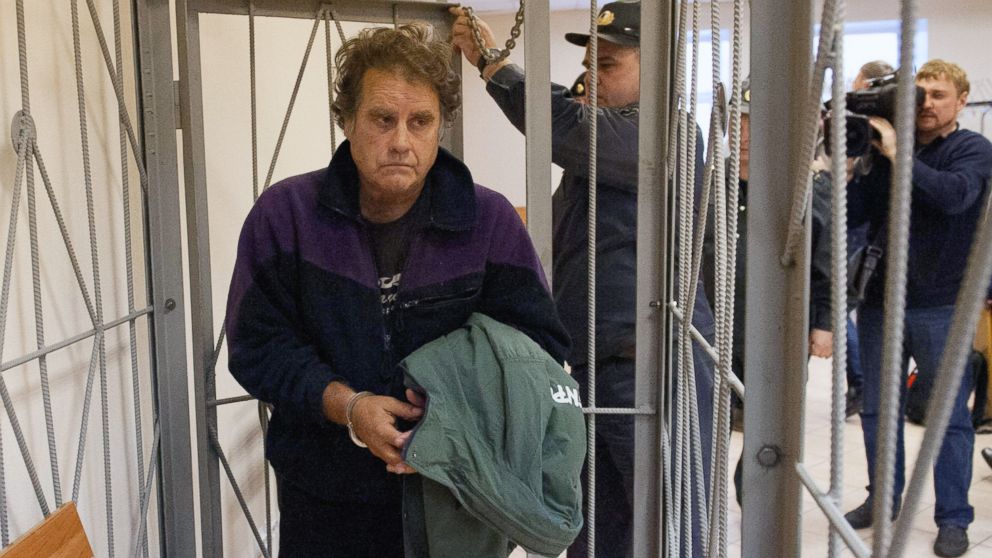American Greenpeace Captain Fears Russian Prison
Capt. Peter Willcox says Russian boarding commandos got drunk on ship's liquor.

MOSCOW Nov. 26, 2013— -- Capt. Peter Willcox is sitting in a St. Petersburg hotel room, wondering how he ever got there.
Not because of the dramatic takeover of his Greenpeace ship by Russian commandos in September; that was almost expected.
But the charge of piracy was not expected. Two months in a grim Russian jail north of the Arctic Circle was also not expected. The possibility of 15 years in prison certainly was not.
And as his pre-trial detention dragged on, his sudden release on bail last week was just another twist in a frightening saga that is still unfolding.
"This was not what we were expecting," the American environmental activist told ABC News in a phone interview.
After 40 years with Greenpeace, Willcox, 60, is no stranger to confrontation. He had been boarded and detained before and, in that sense, what happened on Sept. 19 was almost routine.
That evening, as Willcox was exercising on an elliptical machine in the ship's gym, a Russian helicopter swooped overhead. The commandos, dressed in black with no insignia, rappelled onto the Arctic Sunrise's deck and barked orders at the crew.
"Just commands going 'move' or 'stop,'" he recalled. "When a guy's carrying a machine gun you get the idea."
The commandos rounded up the crew, searched them, and locked them in a room. Then they confiscated everyone's alcohol and, according to other crewmembers, proceeded to get very, very drunk.
The next day, as the Arctic Sunrise was being towed to the Russian port city of Murmansk, Willcox was locked in his cabin but thought he had little to fear. He had protested in Russia twice before.
"We thought we knew Russia," he said. "I'm not very worried. This has happened before. We've been taken over before. I've gotten boarded by the French off Polynesia. It's part of the game. We thought we'll be under arrest after Murmansk and well be out of there."
Their mission, to protest against drilling in the Arctic at a Russian oil platform, had already been a success. Dramatic video of the Greenpeace activists attempting to scale the platform, then being intercepted by armed Russian Coast Guard troops had already drawn worldwide attention. The four days it would take to arrive in port and probably a night in jail would only increase the attention, he thought.
"We're not very disappointed, we're not very worried at that point," he said.
But after arriving in Murmansk, it was soon evident this was no routine detention.
Prosecutors announced charges of piracy, which carries a maximum sentence of 15 years in prison.
"That was devastating, that's a life changer," Willcox said.
Even though Russian President Vladimir Putin eventually downgraded the piracy charge, their detention dragged on. And on. At one point Willcox he was sharing a cell with a Russian man awaiting trial for a year and a half on drug charges, which added to the anxiety.
Willcox was confined to his prison cell 23 hours a day. He wouldn't see the sun for six weeks. During that one hour out he was put in what he described as an "exercise cage" that was only slightly larger than his cell. But it did provide an opportunity to yell at his shipmates to find out what they knew.
"We knew after a couple weeks that everyone was in the same prison, and that was a great thing," he said.
The detention took a toll. Willcox lost 20 pounds in his first three weeks in jail.
"Ninety percent of that weight came off from anxiety and fear. I don't mind telling you I was scared," he said.